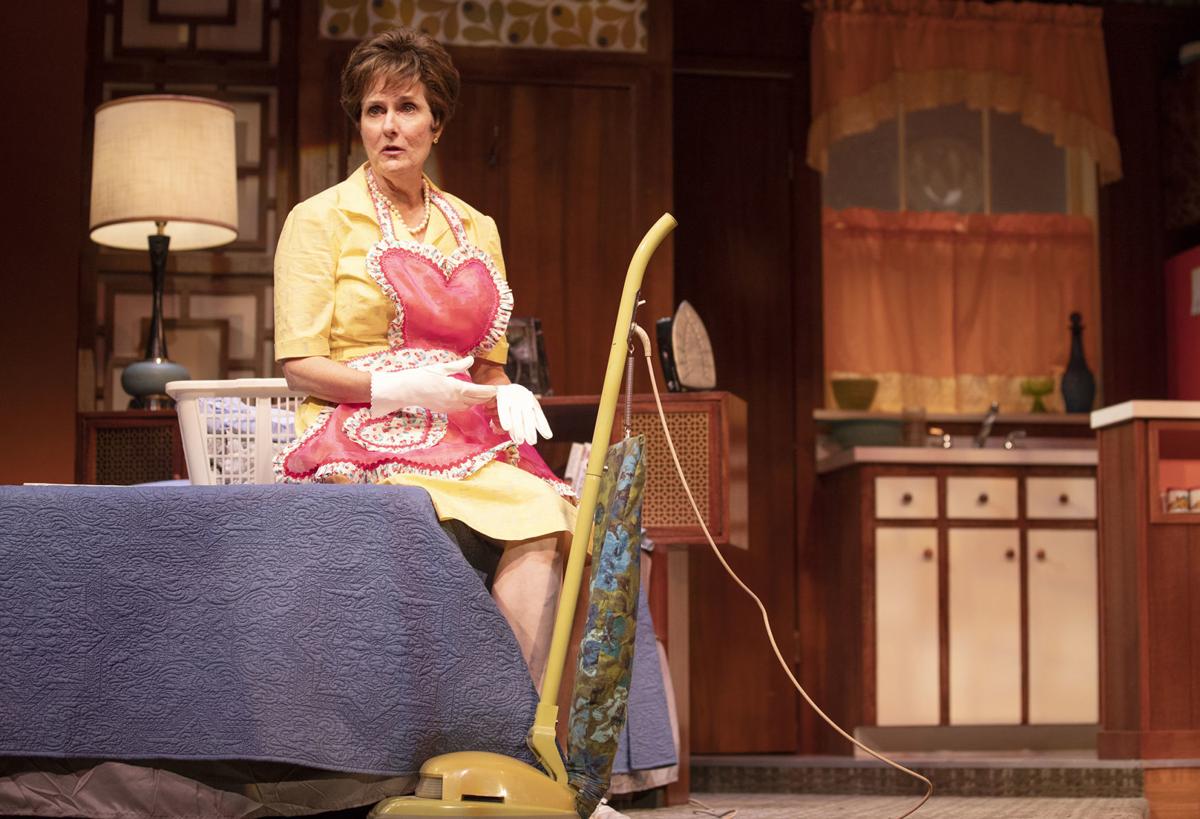Really, there wasn’t much to laugh about in Erma Bombeck’s life.
Her family struggled as she grew up in the Great Depression, her father died when she was still a child, she had breast cancer and a nearly lifelong kidney disease that eventually led to home-dialysis treatments four times a day.
Yet, Bombeck made us laugh with her “At Wit’s End” column, which eventually ran in 900 newspapers. It was about the trials and tribulations of a wife and mother trying to make it through her days in suburbia.
Bombeck, who wrote her column from 1965 until her death in 1996, is the lone character in Arizona Theatre Company’s “Erma Bombeck: At Wit’s End.”
It’s a knockout production of a very flimsy play about Bombeck’s life.
Here’s why: smooth direction by Casey Stangl, and a stellar performance by Tony-nominated actress Jeanne Paulsen.
Paulsen gives the character the charm and warmth one imagines Bombeck, who lived in the Phoenix area, possessed.
And she has a keen sense of timing, so the laughter quickly follows after she delivers classic Bombeck lines such as “The only plus about exercising is I get to hear heavy breathing again,” or “I’ve never met a woman who would give up lunch for sex.”
The play puts Bombeck right smack in the middle of ’70s decor: A red fridge, latticework framing the stage and on the walls, frilly curtains. Scenic designer Jo Winiarski takes us right back to the era — and reminded us that, thankfully, interior design has evolved since those days.
“Erma Bombeck” is entertaining, but that’s about it. There is little that is illuminating about this woman we let into our homes through her column. It glosses right over the subjects that could have given it more nuance: the breast cancer and kidney disease, more on her fight to get the Equal Rights Amendment passed, growing up poor and without a father. Surely there were important insights that came out of her struggles, but they are not here.
Then again, Bombeck was never one to try to reveal deep philosophical truths in her writings. What she did was try to make us laugh at the foibles inherent in domestic life. She did do that, as does this play.





